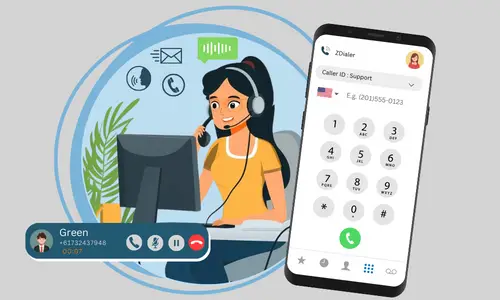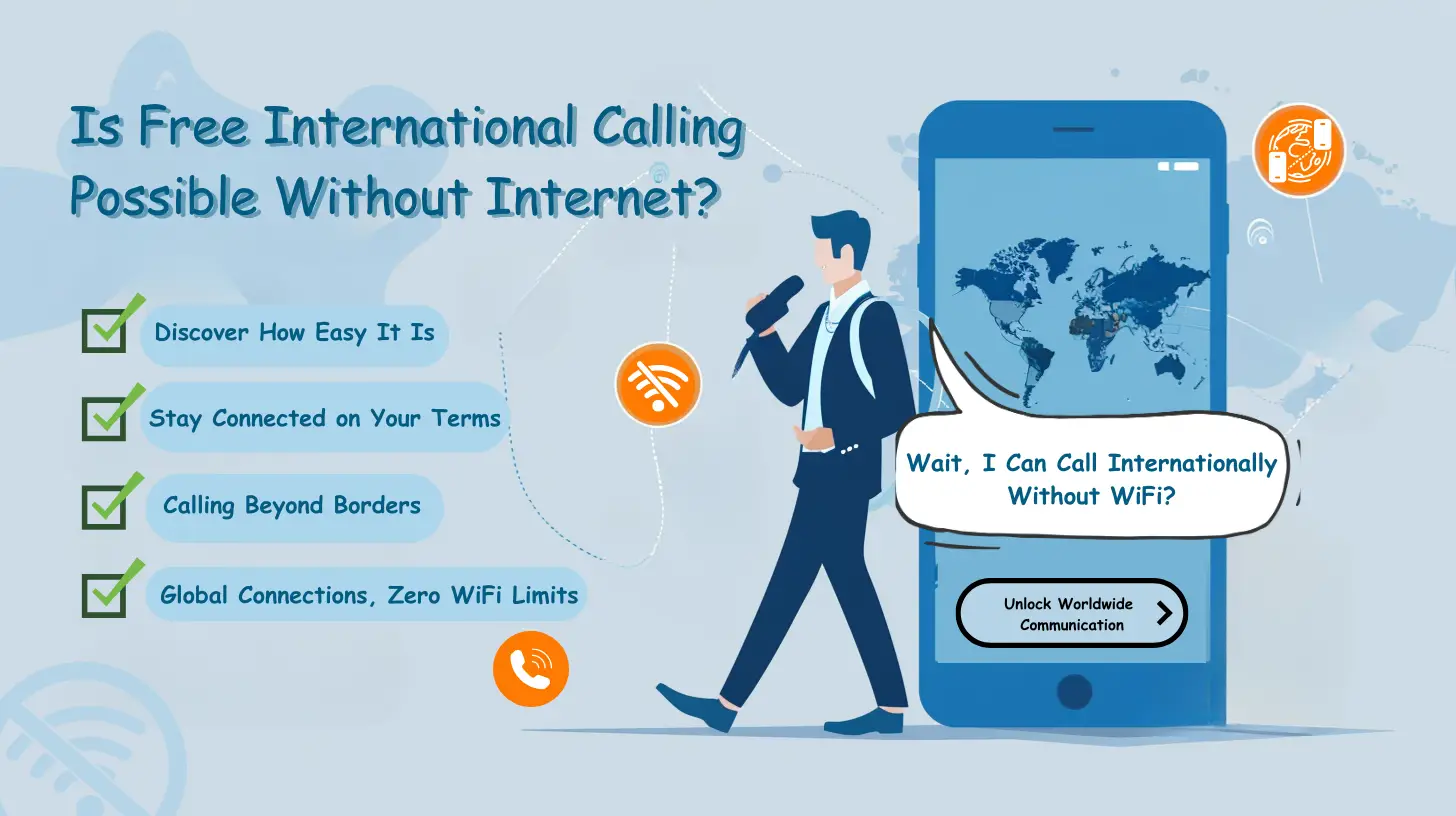Breaking Down the Barriers: Overcoming Challenges for Global Wholesale VoIP Termination Expansion
The Challenge of Global Reach in Wholesale VoIP Termination
In recent years, Voice over Internet Protocol (VoIP) has emerged as a popular technology for businesses looking to enhance their communication capabilities. VoIP allows businesses to make voice and video calls through the internet instead of traditional phone lines.
It is more cost-effective, flexible and scalable than traditional telephony systems. However, businesses seeking global reach wholesale voice termination face several challenges that need to be addressed for successful expansion into new markets.
What Is Wholesale VoIP Termination?
Wholesale call termination refers to the process of routing large volumes of voice or video traffic from one service provider to another, which allows them to terminate calls internationally or nationally. This service is usually offered by wholesalers who buy bulk minutes from multiple carriers at a lower rate and then resell them at a profit.
Wholesale providers typically aggregate traffic from thousands of customers around the world and route it through their network infrastructure, which consists of data centers, servers, switches and routers. This enables them to provide high-quality termination services with low latency and jitter rates.
The Importance of Global Reach in Wholesale VoIP Termination
Global reach is critical for businesses that want to expand their customer base in different countries or regions. By offering international calling services at competitive prices, they can tap into new markets without having to set up physical offices or hire local staff. This allows them to reduce costs while increasing revenue streams.
In addition, having a global presence helps businesses build brand recognition and reputation as an international player. It also enables them to offer value-added services such as conference calling, virtual phone numbers and toll-free numbers that are essential for multinational companies.
An Overview of Challenges Businesses Face When Seeking Global Reach
Despite the benefits of wholesale call, businesses seeking global reach face several challenges that can hinder their success. These include infrastructure challenges, regulatory challenges, cultural challenges, technical challenges and financial challenges.
Infrastructure Challenges
Inadequate infrastructure in some countries is one of the main obstacles to achieving global reach in wholesale voice termination. Many developing countries lack the necessary network infrastructure to support high-quality voice and video traffic. They have limited access to high-speed internet and reliable electricity, which makes it difficult to establish a stable connection.
Building and maintaining network infrastructure can also be expensive for businesses. The cost of laying fiber optic cables or setting up data centers in different countries can be prohibitive, especially for small and medium-sized enterprises (SMEs).
Regulatory Challenges
Different regulatory frameworks in different countries pose another challenge for businesses seeking global reach. Each country has its own set of rules and regulations governing telecommunication services, which can make it difficult for businesses to comply with local laws.
The licensing requirements and fees associated with obtaining permits to operate in different countries can also be daunting for many companies. In some cases, they may need to partner with local providers or resellers who are familiar with the regulatory landscape.
Cultural Challenges
Culture plays a significant role in business communications, especially when dealing with customers from different regions or countries. Language barriers and cultural differences can make it challenging for businesses to establish trust and build relationships with customers.
Understanding local market needs and preferences is essential for successful expansion into new markets. Businesses may need to adapt their communication styles, marketing strategies or product offerings based on cultural factors.
Technical Challenges
Variations in technical standards across different countries pose yet another challenge for businesses seeking global reach. Each country has its own set of technical standards and protocols governing telecommunication services, which can cause compatibility issues with different networks. In addition, the limited availability of skilled technical personnel in some countries can make it difficult for businesses to troubleshoot or maintain their network infrastructure.
Financial Challenges
Currency fluctuations, exchange rates and taxes are other challenges faced by businesses seeking global reach. The cost of establishing a global presence can be significant, especially for SMEs that have limited financial resources. Finding reliable partners or vendors who can provide quality termination services at competitive prices is another financial challenge that businesses face when expanding into new markets.
The challenges faced by businesses seeking global reach in wholesale VoIP termination are numerous and complex. However, addressing these challenges is essential for successful expansion into new markets.
By building robust network infrastructure, complying with local regulations, adapting to cultural differences and investing in skilled technical personnel, businesses can overcome the obstacles to achieving global reach. With a sound strategy and a commitment to excellence, they can establish themselves as international players in the wholesale VoIP termination industry.
Infrastructure Challenges
In the world of wholesale VoIP termination, infrastructure plays a vital role in providing high-quality and reliable services to customers globally. However, businesses face several challenges when expanding their global reach, particularly with regards to infrastructure.
In some countries, there is limited or inadequate infrastructure that makes it difficult for businesses to offer their services. In this section, we will explore the infrastructure challenges that businesses face when seeking global reach.
Inadequate Infrastructure in Some Countries
One of the primary challenges businesses face when expanding their global reach is inadequate infrastructure in some countries. Some regions lack the necessary telecommunications infrastructure needed for VoIP services to function optimally.
The lack of fiber optic cables and other network equipment makes it challenging for businesses to provide reliable connectivity, which can lead to dropped calls or poor voice quality. This challenge is especially prevalent in developing countries where the necessary investment has not been made towards building modern telecommunications networks.
The solution lies in investing heavily in building new high-speed internet networks and upgrading existing ones. Governments can also provide incentives to companies willing to invest in such infrastructure projects by offering tax breaks or subsidies.
Limited Access to High-Speed Internet and Reliable Electricity
Another critical challenge associated with inadequate infrastructure is limited access to high-speed internet and reliable electricity. These two factors are essential for voice communication over IP networks. In some regions, access to electricity can be erratic or unavailable altogether; therefore powering devices used for VoIP communication becomes difficult.
Similarly, without reliable internet connectivity via broadband or cellular data networks users may experience latency issues which lead to poor voice quality during calls. Overcoming these challenges requires significant investment into new technologies like microgrids which offer greater reliability than traditional power grids as well as expanding access to high-speed internet networks.
High Cost of Building and Maintaining Infrastructure
The cost of building and maintaining infrastructure can be prohibitively high, especially for smaller businesses. The high cost is due to the need for expensive equipment, the time required to install it, and the ongoing maintenance expenses. Additionally, some countries may require licenses or permits before businesses can operate their VoIP services.
Obtaining these licenses can be costly, further adding to the overall expense. To overcome this challenge, businesses need to make sure they have a solid business plan that accounts for all associated costs.
They should also consider partnering with other companies or investors who are willing to share the financial burden of building and maintaining infrastructure. Infrastructure plays a vital role in providing wholesale call termination services globally.
However, businesses face several challenges when seeking global reach due to inadequate infrastructure in some countries, limited access to high-speed internet and reliable electricity as well as high costs associated with building and maintaining infrastructure. By investing heavily in new technologies like microgrids and collaborating with other companies or investors, businesses can overcome these challenges and provide reliable services globally.
Regulatory Challenges
One of the primary challenges that businesses face when seeking global reach in call termination is regulatory compliance. Different countries have different regulatory frameworks, and it can be difficult to navigate the complex requirements and fees associated with obtaining licenses and complying with local laws and regulations.
Different Regulatory Frameworks in Different Countries
One major challenge that businesses face when seeking global reach in call termination is navigating the different regulatory frameworks of different countries. Each country has its own set of rules governing telecommunications, which can make it difficult for businesses to comply with regulations in multiple jurisdictions. For example, some countries require licensing for inbound or outbound calls, while others do not.
Some countries require carriers to register with a national regulatory authority before operating within their borders, while others do not have any registration requirements at all. As a result, businesses need to carefully research the regulatory landscape in each country they plan to operate in and work closely with their legal teams to ensure compliance with all relevant laws and regulations.
Complex Licensing Requirements and Fees
In addition to navigating different regulatory frameworks, businesses also face complex licensing requirements and fees when seeking global reach wholesale voice termination. Many countries require carriers to obtain licenses before they can provide telecommunications services within their borders.
The process of obtaining a license can be lengthy and expensive, involving extensive documentation requirements and rigorous scrutiny by regulators. Moreover, many countries charge significant fees for telecom licenses which can add up quickly for companies operating across multiple jurisdictions.
In some cases, businesses may also be required to pay ongoing fees or taxes on telecom services provided within specific regions or markets. These additional costs can significantly impact profitability for companies operating on thin margins.
Compliance with Local Laws and Regulations
Businesses seeking global reach in wholesale voice must also navigate the complex web of local laws and regulations that govern telecommunications services in each market they operate in. Failure to comply with local laws can result in significant penalties, fines, or even criminal charges. For example, some countries have strict data retention requirements that companies must comply with to store call records and other data for a certain period of time.
Other countries have restrictions on the types of content that can be transmitted over VoIP networks or require carriers to provide law enforcement agencies with access to customer data upon request. As a result, businesses need to carefully review all applicable laws and regulations before entering new markets and work closely with their legal teams to ensure compliance at all times.
Cultural Challenges
When expanding globally, businesses must be prepared to face a range of cultural challenges. One of the most significant of these challenges is language barriers. Language differences can make communication difficult and lead to misunderstandings between team members and clients.
It is important for businesses to have staff members who are multilingual or who can work with translators to ensure clear communication. Cultural differences in business practices and customs can also be challenging.
In some cultures, business practices may be more informal, while in others they may be more hierarchical or formal. Understanding these differences is key to building strong business relationships and avoiding misunderstandings.
Different Business Practices and Customs
For example, in some cultures, it is customary to exchange gifts when meeting with potential business partners or clients. In others, it may be considered inappropriate or even unethical for business partners to exchange gifts. It’s important for businesses seeking global reach wholesale call termination to do their research in advance on the customs and practices of the countries they plan on doing business with so as not to unintentionally offend anyone.
Understanding Local Market Needs And Preferences
Another key challenge when expanding globally is understanding local market needs and preferences. In order for businesses to successfully launch products or services in new markets, they must understand what appeals most to local consumers. This means researching consumer behaviors and preferences as well as understanding how local competition operates.
It might mean adapting products or services specifically for that market or changing marketing strategies altogether. Cultural intelligence (CQ), which encompasses knowledge of culture-specific norms along with an ability to adapt behavior effectively across cultures has been identified as a vital skill by many experts when it comes overcoming cultural barriers while entering new markets.
The Benefits Of Overcoming Cultural Challenges
Successfully overcoming cultural challenges can be a significant benefit to businesses. It can lead to deeper and more meaningful business relationships and a better understanding of the needs and preferences of different markets. It also helps create a more inclusive work environment which in turn can attract talent from diverse backgrounds, leading to greater creativity, innovation, and ultimately better business outcomes.
Adopting an inclusive approach to diversity requires organizations have a number of policies in place that help employees understand how to communicate effectively with each other over cultural divides. Providing cross-cultural training programs for employees can go a long way in helping them understand the customs, attitudes, beliefs, and values of their colleagues from different cultures.
The Future of Cultural Integration
The world is becoming increasingly interconnected and diverse. With the advent of advanced communication technologies like VoIP technology that allow for instant connection across boundaries businesses that are prepared to navigate through cultural differences will be better positioned for success as they seek global reach wholesale call termination.
As such companies must prioritize building cross-cultural competencies when expanding into new markets. By doing so they can create an organizational culture that supports cultural understanding while simultaneously increasing productivity and profitability.
Technical Challenges:
Variations in technical standards across different countries.
When businesses try to expand into new markets, one of the biggest challenges they face is the variation in technical standards across different countries. Technical differences can affect how a business operates and its ability to deliver services effectively.
For instance, some countries may have different telecommunication protocols for transferring voice and data traffic. These protocols could be incompatible with some of the equipment or software that a company has purchased, making it difficult to operate in those markets.
Companies must therefore invest time and resources in understanding the differences between technical standards in various regions before entering new markets. This includes researching any regulations regarding telecommunications infrastructure, understanding how devices communicate with each other locally and internationally, and knowing which standards are compatible with which networks.
Compatibility issues with different networks.
In addition to variations in technical standards across different countries, businesses also face compatibility issues when operating on diverse networks. Incompatible networks can lead to connectivity issues that hinder communication between clients or partners.
For example, a VoIP service provider may find that their platform does not work properly on certain local networks due to differing protocols or bandwidth limitations. This could limit their ability to provide reliable service coverage for customers using those networks.
To overcome such compatibility problems when expanding globally, companies need to conduct thorough network testing before launching services in new markets. They should also ensure their platforms are compatible with local network infrastructure by partnering with local operators who understand the region better.
Limited availability of skilled technical personnel.
Another challenge businesses face when seeking global reach wholesale VoIP termination is finding enough skilled personnel who possess both language skills as well as technical expertise necessary for success. The complex nature of VoIP technology requires highly specialized personnel who are able to install systems correctly, maintain them regularly and troubleshoot any problems efficiently.
However, not every country has enough personnel with the necessary skills required for VoIP service operations. To overcome this challenge, companies may need to invest in training programs for their employees or partner with third-party providers who already have the requisite technical expertise.
Conclusion:
Wholesale VoIP termination businesses face several technical challenges when seeking global reach. These challenges include variations in technical standards across different countries, compatibility issues with different networks and limited availability of skilled personnel.
Overcoming these challenges requires a thorough understanding of the local telecommunications infrastructure and partnering with local experts who understand the markets better. By investing time and resources in addressing these technical challenges, businesses can expand successfully into new markets while maintaining high-quality service delivery.
Financial Challenges
Currency Fluctuations and Exchange Rates
Global reach wholesale VoIP termination is an expensive endeavor, and businesses face numerous financial challenges. One of the most significant challenges is dealing with currency fluctuations and exchange rates. Business owners must be aware of the constantly changing exchange rates and how they affect their bottom line.
Fluctuating currencies can significantly impact the cost of doing business in different countries, making budgeting a challenging task. Furthermore, it may also affect pricing strategies that businesses use to remain competitive in the market.
Taxes
Another financial challenge that businesses face when seeking global reach wholesale VoIP termination is taxes. Different countries have different tax requirements and regulations, which can significantly impact a company’s bottom line.
Some countries have higher tax rates than others, while some offer tax incentives to attract foreign investment. Failure to comply with local tax laws can lead to severe legal consequences.
High Costs Associated with Establishing a Global Presence
Establishing a global presence in the wholesale VoIP termination industry requires significant financial investment upfront. Businesses often need to set up new offices, hire local staff, and invest in marketing efforts to expand into new markets successfully. These expenses can add up quickly, making it difficult for small or medium-sized companies to compete with larger corporations that have deeper pockets.
Difficulty Finding Reliable Partners or Vendors
A crucial aspect of expanding globally in the wholesale VoIP termination industry is finding reliable partners or vendors who can provide high-quality services at reasonable prices. However, this can be a challenging task because not all vendors or partners are created equal – some may have poor communication skills or low-quality services that could negatively impact your business’s reputation globally.
The Importance of Risk Management Strategies for Financial Challenges
To effectively tackle these financial challenges associated with global reach wholesale VoIP termination, businesses must develop effective risk management strategies. This includes careful budgeting, monitoring currency fluctuations and exchange rates, maintaining an adequate cash reserve to handle unexpected expenses, and partnering with reputable financial institutions that can help mitigate the risks associated with international finance. Global reach wholesale VoIP termination offers significant opportunities for businesses to expand their customer base and revenue streams.
However, it also presents numerous financial challenges that businesses must overcome to succeed in this competitive industry. By developing effective risk management strategies and staying informed about the latest market trends and regulations, businesses can effectively navigate these challenges and achieve success on a global scale.




























